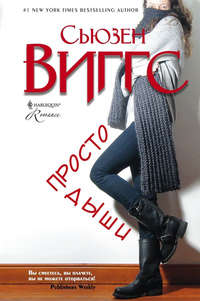
Полная версия
The Winter Lodge
Stepping into the alleyway behind the bakery, she sucked in air. Then she choked it back out immediately, tasting the acrid burn of Newport cigarettes.
“God, Zach,” she said to the kid leaning against the building. “Those things will kill you.”
“Naw,” he said, flicking his ashes into the Dumpster, “I’ll quit before that happens.”
“Huh.” She cleared her throat. “That’s what they all say.” She hated it when kids smoked. Sure, her grandfather had smoked, rolling his own cigarettes out of Velvet Tobacco. But back in his day, the dangers of the habit were unknown. Nowadays, there was simply no excuse. Grabbing a handful of snow, she tossed it at the cigarette, killing the red ash.
“Hey,” he said.
“You’re a smart boy, Zach. I heard you’re an honor student. So how come you’re so stupid about smoking?”
He shrugged and had the grace to look sheepish. “Ask my dad, I’m stupid about a lot of things. He wants me to spend next year working up at the racetrack in Saratoga to earn my own money for college.”
She knew, by the chintzy tips Matthew Alger left at the bakery’s coffee shop, that Alger—who worked as the city administrator—carried his stinginess into his personal life. Apparently, he applied it to his son’s as well.
Jenny had grown up without a father and had yearned for one more times than she could count. Matthew Alger was proof that the longed-for relationship might sometimes be overrated.
“I’ve heard that quitting smoking saves the average smoker five bucks a day,” she said. She wondered if her voice sounded strange to him, if he could tell she had to force each word past the tightness in her throat.
“Yeah, I’ve heard that, too.” He flicked the damp cigarette into the Dumpster. “Don’t worry,” he said before she could scold him, “I’ll wash my hands before I go back to work.”
He didn’t seem to be in a hurry, though. She wondered if he wanted to talk. “Does your dad want you to work for a year before college?” she asked.
“He wants me working, period. Keeps telling me how he put himself through college with no help from his family, pulled himself up by his bootstraps and all that.” He said it with no admiration.
She wondered about Zach’s mother, who had remarried and moved to Seattle long ago. Zach never talked about her. “What do you want, Zach?” Jenny asked.
He looked startled, as though he hadn’t been asked that in a while. “To go far away to college,” he said. “Live somewhere different.”
Jenny could relate to that. At his age, she’d been certain an exciting life awaited her somewhere far away. She’d never even made it out the door, though. “Then that’s what you should do,” she said emphatically.
He shrugged. “I’ll give it a shot, I guess. I need to get back to work.”
He headed inside. Jenny lingered outside, blowing fake smoke rings with the frozen air. Although the conversation had distracted her briefly, it had done nothing to banish the churning panic. She was alone with the feeling now; it screamed through her like the sirens in the quiet of the night. And like the sirens, the feeling intensified, closing in on her. The ceiling of stars pressed down, an insurmountable weight on her shoulders.
I surrender, she thought and plunged her hand into the pocket of her chef pants, groping for the brown plastic prescription bottle. The pill wasn’t much bigger than a lead BB. She swallowed it without water, knowing it would take effect in a few minutes. It was kind of amazing, she thought, how a tiny pill could quiet the terrified knocking of her heart in her rib cage, and cool the frantic sizzle of her brain.
“Only when you need it,” the doctor had cautioned her. “This medication can be highly addictive, and it has a particularly nasty detox.”
Despite the warning, she already felt calmer as she tucked the bottle away. She smoothed her hand over her pants pocket.
Still thinking about Zach, she scanned the familiar neighborhood, a downtown of vintage brick buildings that housed businesses, shops and restaurants. Years ago, if someone had told Jenny she’d still be in Avalon, working at the bakery, she would have laughed all the way to the train station. She had big plans. She was leaving the small, insular place where she’d grown up. She was headed for the big city, an education, a career.
It probably wasn’t fair to let Zach in on an ugly little secret—life had a way of kicking the support out from under the best-laid plans. At the age of eighteen, Jenny had discovered the terrifying inadequacies of the healthcare system, especially when it came to the self-employed. By twenty-one, she was familiar with the process of declaring personal bankruptcy, and just barely managed to hang on to the house on Maple Street. There was no question of her leaving Gram, widowed and disabled from a massive stroke.
The pill kicked in, covering the sharp edges of her nerves like a blanket of snow over a jagged landscape. She took in a deep breath and let it out slowly, watching the cloud of mist until it disappeared.
The sky to the north, in the direction of Maple Street, seemed to flicker and glow with unnatural light. She blinked. Probably just the strange aftermath of the panic attack. She should be used to this by now.
Two

When the monitor in Rourke McKnight’s squad car sent out an urgent tone alert and “any unit about clear” for 472 Maple Street, it flash-froze his heart.
That was Jenny’s house.
He had been on the far side of town, but the moment the call came, he grabbed the handheld mike, gave his location and ETA to dispatch and fired the sedan into action. His tires spewing snow and sand, he peeled out, the back end fishtailing on the slippery road. At the same time, he put in a call to the dispatcher. “I’m en route. I’ll let you know when I’m code eleven.” His voice was curiously flat, considering the emotions now roaring through him.
A general page had gone out that the structure—God, Jenny’s house—was on fire and “fully involved.” Besides that, Jenny hadn’t been spotted.
By the time he reached the house on Maple Street, the entire home was wrapped in bright ribbons of flame, with curls of fire leaping out of every window and licking along the eaves.
He parked with one headlamp buried in a snowbank and exited his vehicle, not bothering to close the door behind him, and did a visual scan of the premises. The firefighters, their trucks and equipment, were bathed in flickering orange light. Two pumper hoses attacked the blaze; men struggled to excavate a hydrant from the snow. The scene was surprisingly quiet, not chaotic at all. Yet the wall of flame was impenetrable and unsafe for the firefighters—even fully equipped and clad in bunker gear—to enter.
“Where is she?” Rourke demanded of a firefighter who was relaying messages on a shoulder-mounted radio. “Where the hell is she?”
“Haven’t found the resident,” the guy said, flicking a glance at another emergency vehicle parked in the road—an ambulance, its crew standing ready. “We’re thinking she’s away. Except … her car’s in the garage.”
Rourke strode toward the flaming house, bellowing Jenny’s name. The place burned like a pile of tinder. A window burst, and hot glass rained down on him. Automatically his hand came up to shield his eyes. “Jenny!” he yelled again.
In one instant, all the years of silence fell away and regrets flooded in. As if he could fix anything by avoiding her. I’m an idiot, he thought. And then he bargained with anyone or anything that might be listening. Let her be okay. Please just let her be okay and I’ll keep her safe forever and never ask another thing.
He had to get inside. The front steps were gone. He raced around back, slipping in the snow, righting himself. Someone was shouting at him, but he kept going. The back of the house was in flames, too, but the door was gone, having been hacked through by a firefighter’s ax. More shouting, more guys in bunker gear running at him, waving their arms. Shit, thought Rourke. It was stupid, but it wasn’t the dumbest thing he’d ever done, not by a long shot. Pulling his parka up over his nose and mouth, he went inside.
He’d been in this kitchen many times, yet it resembled a yellow vortex, all but unrecognizable. And there was nothing to breathe. He felt the fire sucking the air out of his lungs. He tried to yell for Jenny but couldn’t make a sound. The linoleum floor bubbled and melted under his feet. The doorway leading to the stairs was a tall rectangle of fire, but he headed toward it anyway.
A strong hand on his shoulder hauled him back. Rourke tried to fight him off, but a second later, something—a railing from upstairs, maybe—came crashing down, raining fire and plaster. The firefighter shoved him out the back door. “What the hell are you doing?” he yelled. “Chief, you need to get back. It’s not safe here.”
Rourke’s throat burned as he gulped in air, then coughed. “No shit. If you won’t send anyone in, I’m going myself.”
The firefighter—a deputy chief Rourke vaguely recognized—planted himself in the way. “I can’t let you do that.”
Fury flashed through him, an unreasoning sting. In one swift movement, Rourke’s arm whipped out, shoving the guy out of the way. “Step aside,” he barked.
The firefighter didn’t say a word, just fell back with his hands raised, eyes darting behind his face shield. “Listen, we’re both on the same side. You saw what it’s like in there. You wouldn’t last thirty seconds. We don’t think the resident’s at home, honest, we don’t. If she was home, she would’ve gotten out.”
Rourke unfurled his fists. Damn. He’d been about to clock the guy. What the hell was he thinking?
He wasn’t thinking, that was the problem. That had always been his problem. He needed to figure out where Jenny was. Possibilities streamed through his mind. Maybe she was at her best friend Nina’s house. But at this time of night? Or maybe Olivia Bellamy’s? No. Though related, the two women weren’t close. Shit, was she dating some guy Rourke didn’t know about?
Then it hit him. Of course. “Damn,” he said, and bolted for the car.
Jenny was still standing outside the bakery, waiting for the dawn, when a blue-white flash lit the sky. The sudden lightning was eerily out of place in the middle of winter. Then she heard the quick yip of a siren and realized it was emergency lights. The vehicle sounded close, as though it was in the next block. Busy night, she thought, heading back into the bakery. She passed through the kitchen, where Zach was wheeling more dough out of the proofer.
She was about to get back to work when she heard an urgent rapping on the front door. “I’ll see who it is,” she called to Laura and Zach, and walked through the café, which at this hour was dimly lit only by the buzzing neon sign of a coffee cup with squiggles of steam rising from it.
The electric blue of a squad car’s emergency overhead lights slashed through the empty café. Hurrying now, Jenny undid the lock. The bell over the front door jangled, and Rourke McKnight strode inside, his long coat swirling on the winter wind.
Avalon’s chief of police looked the part. His square jaw was clean-shaven, his shoulders broad and powerful. Though he was blond and blue-eyed, a crescent-shaped scar on his cheekbone kept him from being too pretty.
“I have a feeling you’re not dropping in for a cup of coffee,” said Jenny. These were probably the first words she’d spoken to him in years.
He gave her a smoldering look, one that made her wonder what it would be like to be his girlfriend, a member of the parade of bimbos who seemed to march through his life with serial regularity. Right, she thought. Why would she want to join a parade of bimbos?
Rourke grabbed her by the upper arms. “Jenny. You’re here.” His voice was rough, urgent.
Okay, so this was interesting. Rourke McKnight, grabbing her, pulling her into his embrace. What on earth had she done to deserve this? Maybe she should have done it long ago.
“I couldn’t sleep,” she said, and glanced at his hands on her. She and Rourke didn’t touch, the two of them. Not since … they didn’t touch.
He seemed to read her thoughts and let her go, jerking his head toward the door. “We’ve got a situation at your house. I’ll give you a lift over there.”
Despite the fuzzy edges of reality imparted by the pill she’d taken, she felt a deep, visceral disturbance. “What kind of situation?”
“Your house is on fire,” Rourke said simply.
Jenny formed her mouth into an O, but no sound came out. What did one say, anyway, when confronted with such a statement?
“Go,” Laura said, thrusting her parka and boots at her. “Call me later.”
The fuzzy edges did not alter as Jenny got into the squad car Rourke drove on the weekends. Even the swirling lights sweeping the area in an ovoid circuit didn’t make her flinch. Yet she was sharp with attention. The wonders of modern chemistry, she thought.
“What happened?” she asked.
“Call came in, a 911 from Mrs. Samuelson.”
Irma Samuelson had lived next door to the Majeskys for years. “It’s impossible,” Jenny said. “I—how could my house be on fire?”
“Seat belt,” he said, and the moment she clicked the buckle, he peeled away from the curb.
“Are you sure there’s no mistake?” she asked. “Maybe it’s someone else’s house.”
“There’s no mistake. I checked. God, I thought—God damn—”
Was his voice shaking? “Oh, no,” she said. “Rourke, you thought I was in the house.”
“It’s a safe assumption at this hour of the morning.”
So that was why he’d grabbed her. It was relief, pure and simple. As they sped toward Maple Street, she became aware of a peculiar smell. “It reeks of smoke in here.”
“You’re welcome to roll down the window if you don’t mind freezing.”
“Where did the smoke smell come—Oh, God. You went into the house, didn’t you?” She could just picture him, pushing past firefighters to battle his way into the burning house. “You went inside to find me.”
He didn’t reply. He didn’t have to. Rourke McKnight was always rescuing people. It was a compulsion with him.
“Did you leave the stove on?” he asked her. “Maybe an appliance …?”
“Of course not,” she snapped. The questions ticked her off because they scared her. Because it was possible she had been careless. She lived alone now, and maybe she was turning strange. Sometimes she couldn’t shake the feeling that she was doomed to live the life of a loner, an outcast with nobody to turn off the coffeemaker if she left it on. She could end up like that old cat lady she and her friends used to make up stories about when they were kids—alone, eccentric, with nothing but a smelly house full of cats for company.
“… zoning out on me, are you?” Rourke’s voice broke in on her thoughts.
“What?” she said, giving herself a mental shake.
“Are you all right?”
“You just said my house is burning down. I don’t think I’m supposed to be all right about this.”
“I mean—”
“I know what you mean. Do I seem anxious to you?”
He flicked a glance at her. “You’re cool, under the circumstances. We’re not there yet, though. Do you know what it means when the fire department says the structure is fully involved?” he asked.
“No, I—” She choked on the rest of the sentence when he turned the corner and she caught a glimpse of her street. Her heart tripped into overdrive. “My God.”
The street was barricaded at both ends and jammed with emergency vehicles, workers and equipment. Amber lights on tripods blazed from the shadows. Neighbors in winter coats thrown over their pajamas were clustered in their front yards or on porches, their heads tilted skyward, their expressions openmouthed with wonder, as though they were watching a Fourth of July fireworks display. Except no one was smiling, oohing or aahing.
Firefighters in full turnout gear surrounded the house, battling flames that lit up the entire two-story height of the building. Rourke stopped the car and they got out. A row of upper-story windows had been blown out as if someone had shot them, one after the other.
Those windows lined the upstairs hallway, which had been hung with family photos—an old-fashioned wedding portrait of her grandparents, a few of Jenny’s mother, Mariska, who was eternally twenty-three and beautiful, frozen at the age she was the year she went away. There was also an abundant, fast-changing array of Jenny’s school portraits through the years.
As a little girl, she used to run up and down the hall, making noise until Gram told her to simmer down. Jenny always loved that expression: simmer down. She would stand with her hands on her head, making a hissing sound, a simmering pot.
She liked to make up stories about the people in the pictures. Her grandparents, who faced the camera lens with the grave stiffness typical of immigrants freshly minted from Ellis Island, became Broadway stars. Her mother, whose large eyes seemed to hold a delicious secret, was a government spy, protecting the world while in hiding in a place so deep underground, she couldn’t even tell her family where she was.
Somebody—a firefighter—was yelling at everyone to get back, to stay a safe distance away. Other firefighters ran up the driveway with a thick, heavy hose on their shoulders. On a raised ladder that unfolded from the engine truck, a guy battled the flaming roof.
“Jenny, thank the Lord,” said Mrs. Samuelson, rushing to greet her. She wore a long camel-hair coat and snow boots she hadn’t bothered to buckle, and she cradled Nutley, her quivering Yorkshire terrier, in her arms. “When I first noticed the fire, I was terrified you were in the house.”
“I was at the bakery,” Jenny explained.
“Mrs. Samuelson, did someone get a statement from you?” Rourke asked.
“Why, yes, but I—”
“Excuse us, ma’am.” Rourke took Jenny’s hand and led her past the fire line to the rear of the engine. An older man was giving orders on a walkie-talkie, and another was rebroadcasting them with a bullhorn.
“Chief, this is Jenny Majesky,” Rourke said. He kept hold of her hand.
“Miss, I’m sorry about your house,” said the chief. “We had an eight-minute response time after the alarm came in, but this one had been going long before we got the call. These older homes—they tend to go fast. We’re doing our best.”
“I … um … thank you, I guess.” She had no idea what to say when her house was going up in smoke.
“Your neighbors said there were no household pets.”
“That’s right.” Just Gram’s African violets and potted herbs in the garden window. Just my whole world, everything I own, Jenny thought. She was shivering in the wintry night despite the layers of warm clothes and the roar of the flames. It was amazing how hard, how uncontrollably, she shook.
Something warm and heavy settled around her shoulders. It took a moment for her to realize it was a first-aid blanket. And Rourke McKnight’s arms. He stood behind her and pulled her against him, her back to his front, his arms encircling her from behind as though to shield her from harm.
With an odd sense of surrender, she leaned against him, as though her own weight was too much for her. She shut her eyes briefly, hiding from the glare and the sting of the smoke. The fire was warm against her face. But the acrid smell nauseated her, made her picture everything in the house feeding the flames. She opened her eyes and watched.
“It’s ruined,” she said, turning her head and looking up at Rourke. “Everything’s gone.”
A guy with a camera, probably someone from the paper, stood in the bed of his truck and aimed his long lens at the scene.
Rourke’s arms tightened around her. “I’m sorry, Jen. I wish I could say you’re wrong.”
“What happens now?”
“An investigation into the cause,” he said. “Insurance claims, inventory.”
“I mean right now. The next twenty minutes. The next hour. Eventually they’ll put the fire out, but then what? Do I go back to the bakery and sleep under my desk?”
He bent his head low. His mouth was next to her ear so she could hear him over the roaring noise, and his body curved protectively over hers. “Don’t worry about that,” he said. “I’ve got you covered.”
She believed him, of course. She had good reason. She’d known Rourke McKnight for more than half her life. Despite their troubled history together, despite the guilt and heartache they’d once caused each other and the great rift that gaped between them, she’d always known she could count on him.
Three

Jenny’s eyes flew open as she was startled from a heavy, exhausted sleep. Her heart was pounding, her lungs starved for air and her mental state confused, to put it mildly. Her mind was filled with a grim dream about a book editor systematically feeding the pages of Jenny’s stories into the bakery’s giant spiral mixer.
She lay flat on her back with her limbs splayed, as though the bed was a raft and she a shipwreck survivor. She stared without comprehension at the ceiling and unfamiliar light fixture. Then, cautiously, she pushed herself up to a sitting position.
She was wearing a gray-and-pinstripe Yankees shirt, so large that it slipped off one shoulder. And a pair of thick cotton athletic socks, also large and floppy. And—she lifted the hem of the shirt to check—plaid men’s boxers.
She was sitting smack in the middle of Rourke McKnight’s bed. His gigantic, California king bed that was covered in shockingly luxurious sheets. She checked the tag of a pillowcase—600 thread count. Who knew? she thought. The man was a sensualist.
There was a light tap on the door, and then he came in without waiting for an invitation. He had a mug of coffee in each hand, the morning paper folded under his arm. He was wearing faded Levi’s and a tight T-shirt stenciled with NYPD. Three scruffy-looking dogs swirled around his legs.
“We made the front page,” he said, setting the coffee mugs on the bedside table. Then he opened the Avalon Troubadour. She didn’t look, not at first. She was still bewildered and trapped in the dream, wondering what had caused her to awaken so quickly. “What time is it?”
“A little after seven. I was trying to be quiet, to let you sleep.”
“I’m surprised I slept at all.”
“I’m not. Hell of a long day yesterday.”
Now, there was an understatement. She had stuck around half the day, watching the firefighters battle the flames to the very last embers. Under heavy, gray winter skies, she had seen her house transformed from a familiar two-story house into a black scar of charred wood, ruined pipes and fixtures, objects burned beyond recognition. The stone fireplace stood amid the rubble, a lone surviving monument. Someone explained to her that after the investigators determined the cause of the fire and the insurance adjustor paid a visit, a salvage company would sift through the ruins, rescuing whatever they could. Then the rubble would be removed and disposed of. She was given a packet of forms to fill out, asking her to estimate the value of the things she’d lost. She hadn’t touched the forms. Didn’t they know her greatest losses were treasures that had no dollar value?
She had simply stood there with Rourke, too overwhelmed to speak or plan anything. She added her shaky signature to some documents. In the late afternoon, Rourke declared that he was taking her home. She hadn’t even had the strength to object. He had fixed her instant chicken soup and saltine crackers, and told her to get some sleep. That, at least, she’d accomplished with ease, collapsing in a heap of exhaustion.
Now he sat down on the side of the bed, his profile illuminated by the weak morning light struggling through translucent white curtains on the window. He hadn’t shaved yet, and golden stubble softened the lines of his jaw. The T-shirt, thin and faded from years of washing, molded to the muscular structure of his chest.









